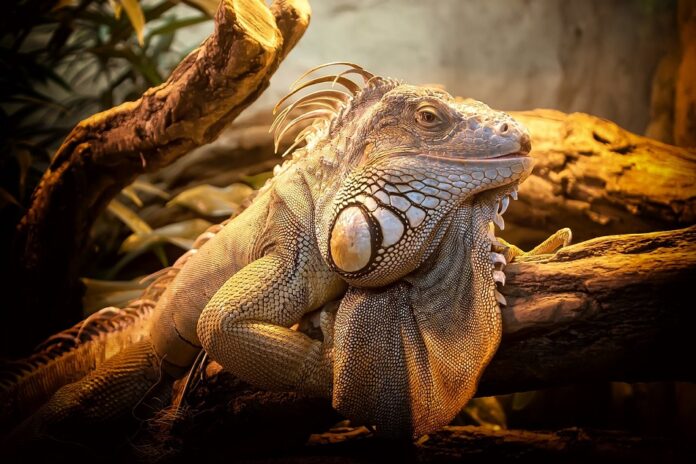Different reptiles require different types of food. Continue reading to learn more about these categories.
Are you planning to add a new member to your family? If you haven’t made up your mind about the category you want to adopt, reptiles make an excellent pet. All reptiles are distinct in some way, their sizes, colors, and types will provide you with a wide range of options.
Even though reptiles appear to be fearsome, they are sensitive creatures that require special care. You must have a comprehensive idea of how to take proper care of each type, as well as their feeding habits. So, if you don’t mind offering cockroaches, worms, or mice to your reptile, go ahead and buy one.
This article will provide you with useful tips that will make you a reptile care expert. You can grant your reptile a warm greeting, and unlike cats, reptiles will be delighted with your preparations.
How to Feed and Care for Reptiles
There are so many reptiles who like to feed on mealworms like snakes, lizards, chameleons, and so on… each having their own unique needs. So, before bringing one home, here are some facts you need to know.
Do Your Homework
Amphibians, like humans, have requirements that must be met for them to be happy. They need a certain climate, a particular diet, some may grow large while others remain small. Hence, it is important to do some research on the reptile you want to buy. The knowledge will serve as a useful tool in helping you plan for the future.
Understand Their Eating Styles
Unlike dogs and cats, every reptile requires a healthy balanced diet depending on its native habitat and accessible prey. Each reptile follows one of four primary eating strategies. You can easily find out where to put your reptile among these four options.
- Herbivores: A diet of fruits, vegetables, and dry food will suffice for some reptiles. Many turtles, as well as several lizard species, become herbivores as they grow older. You can feed them a variety of fresh greens for a balanced diet if yours is a herbivore.
- Carnivore: A majority of reptiles are carnivores, feeding on other creatures like mice and rats. Commercially obtained vermin is a good choice for them. This way you can feel compassionate towards the prey while taking care for the safety of your pet as these critters are parasite and infection-free.
- Omnivore: Omnivore animals eat both vegetables and meat. This does not imply that your omnivorous reptile will consume everything. You must determine the ideal food for your pet. Find a good herp vet to get some guidance on this.
- Insectivores: As insects are living creatures, this category technically falls under the banner of a carnivore, but it relates more particularly to the diets of bugs, roaches, maggots, worms, etc… You may “bowel pack” the insects with nourishing, healthy substances or buy pre-loaded insects to ensure your pet gets a nutrient-rich diet.
Regardless of the category of your reptile’s diet, make sure your pet gets the necessary vitamins and nutrients required, such as Vitamin D3 and calcium.
Enhance Their Natural Behavior
Reptiles and amphibians require a comfortable environment. You should try to recreate their native habitat as closely as possible. Many experts recommend adding UVB/UVA bulbs to the reptile tank. These bulbs can help reptiles behave more naturally.
For example, the reptile will eat more, have a stronger immune system, and maintain their breeding habits, among other things… Many reptiles require UVB for their health, and without it, they may not have a normal growth, become disfigured, and die young. Make sure to replace these bulbs annually.
Temperature and Humidity
A wide-range thermometer should be installed on the tank to monitor the temperature and ensure that it is suitable for the reptile. A better reading of the enclosure’s thermal gradient can be obtained by using two thermometers, one on each end (warm to cool).
To survive, reptiles require a moderately warm environment. So, to keep the temperature gradient consistent inside the tank you can use a variety of materials such as hot pebbles, ceramic heating elements, or basking lamps.
Be Gentle
Reptiles need some time to get adjusted to their new surroundings. Allow them to calm down before reaching inside their cage to hold them. The reptile will become agitated and bite you or develop anxiety if they do not get enough time to get adjusted to their new surroundings. Give them some time to get used to their new home and new friends.
If you want to hold your pet, gently place your hand inside one of the cage’s corners and urge the reptile to come to you. Then carefully grab him by placing your hand beneath its tummy. Don’t squeeze them too tightly. Make the reptile feel at ease and cared for. Wash your hands thoroughly with soap after you have put the reptile safely back in its tank.
Tank Size
Your reptile may be small when you brought it, so a tiny tank will be fine at that stage. However, as your reptile grows it will expand in size, therefore it is better to purchase a large tank as its first home. This will save you money from replacing the tanks on a regular basis. If you need help, consult with a herp vet to determine the ideal tank size for your reptile.
Drinking Water
It’s vital to remember to change the drinking water if your reptile urinates in it. Fear of drowning in the water pit may prevent your reptiles, particularly newborns, from drinking on their own. You might have to assist them to do so.
Want to Feel Like The Cool Kids? Get a Reptile
Exotic reptiles are popular pets among bikers. Get one yourself if you want to feel as awesome as they do. These suggestions can help you keep your reptile healthy and safe, and you’ll be able to brag about it to your friend.


